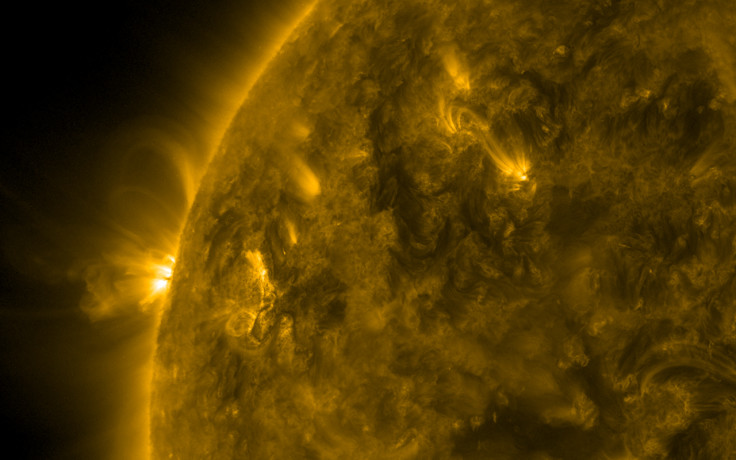Could the sun save us from climate change? Our star may emit less heat by mid-century
'Grand minimum' phenomenon will cause our star to produce less radiation, say scientists.

New research suggests that the Sun will emit less radiation by the middle of the century, perhaps decreasing the rate at which our planet is warming – although this may not be enough to put an end to human-induced global warming.
The reason for the drop in temperatures is a periodic phenomenon known as a 'grand minimum' during which the Sun's magnetism diminishes, sunspots form less frequently and, smaller amounts of ultraviolet radiation make it to Earth. The event occurs at irregular intervals, influenced by random fluctuations in the star's magnetic field.
When grand minimums occur, they can cause extended cold snaps on Earth. Scientists attribute mid-17<sup>th Century cooling in Europe to such an event. Temperatures were so low over this period that the Thames froze over multiple times and the Swedish army invaded Denmark on foot in 1658 by marching over sea ice.
Using satellite observations of nearby Sun-like stars, University of California San Diego scientists have predicted that there is a significant probability of a grand minimum in the near future and have also estimated, for the first time, how much dimmer the Sun will be when the next event takes place - seven percent below the star's current minimum output.
"Now we have a benchmark from which we can perform better climate model simulations," said physicist Dan Lubin. "We can therefore have a better idea of how changes in solar UV radiation affect climate change."
The grand minimum will set in motion a sequence of events on Earth, beginning with the thinning of the ozone layer. This will affect the temperature of the stratosphere, which in turn will alter wind and weather patterns in the lower atmosphere. While cooling is likely to occur, this will not necessarily be uniform – during the 17<sup>th Century 'Maunder Minimum' areas of Alaska and Greenland warmed as Europe froze.
Lubin thinks that the next grand minimum has the potential to slow the rate of global warming temporarily but will likely not stop it as any cooling effect will be smaller than the warming caused by fossil fuel emissions.





















